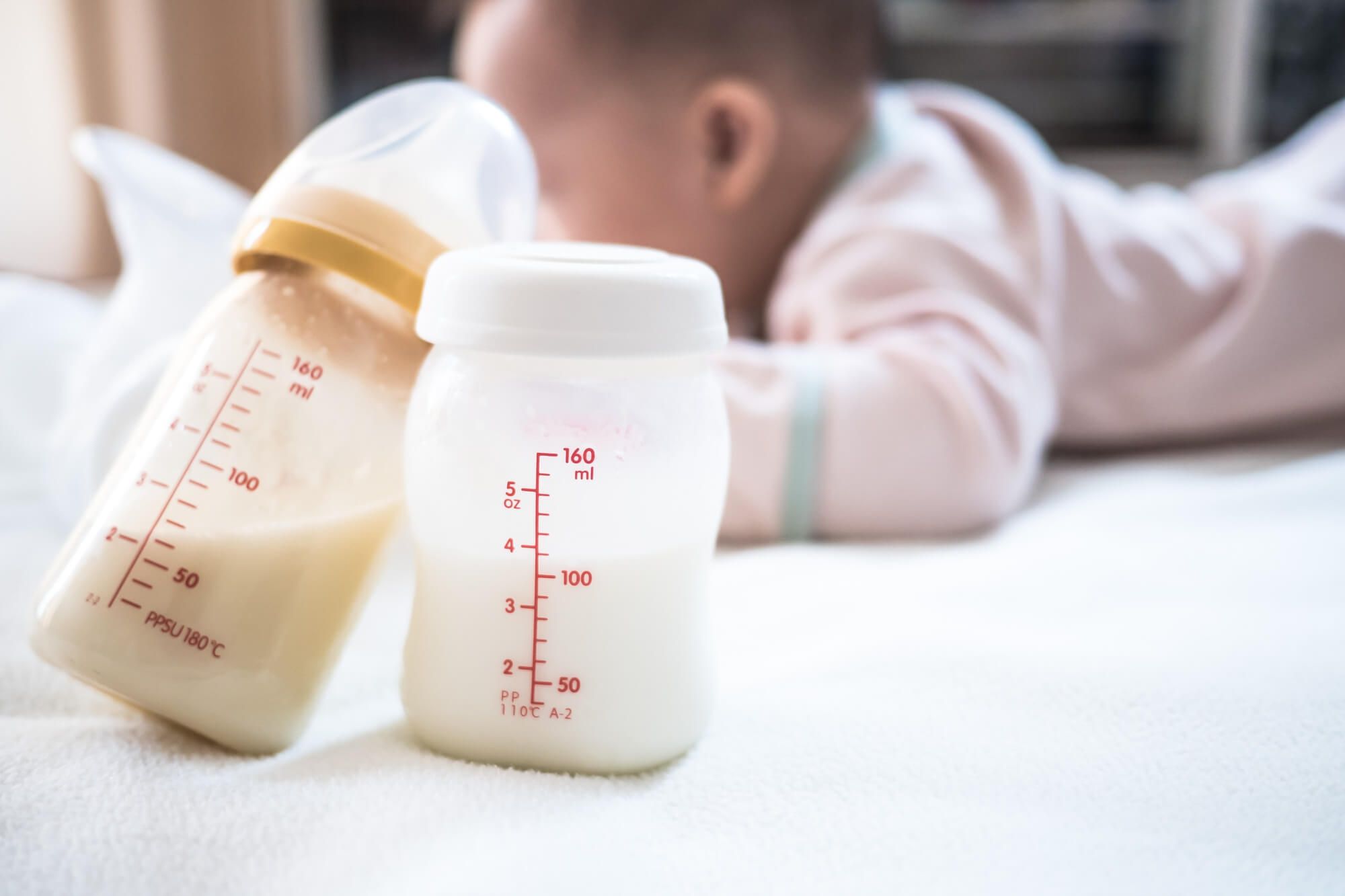Infant formula allergy: how to recognize and counteract the problem?


Eva Zakharova
Allergies to formula in a baby, especially a newborn, are a common problem. Parents of an infant often wonder how to understand what and how long it takes to manifest an allergy to baby formula and whether it looks the same as an allergic reaction to other products.
What is a formula allergy?
A formula allergy in an infant is an immune reaction to one or more components of milk formula. Most allergies are caused by cow's milk protein found in Nutrilak, Similac and other formulas.
Allergies to formula can be fast or slow. Fast allergies occur within the first few hours of drinking the formula, and slow allergies take a few days.
Causes of a formula allergy
The main cause of a baby's allergy to formula is an intolerance to one or more components of the formula. Heredity or gastrointestinal diseases can also be a factor.
Symptoms of infant formula allergy

- How does a formula allergy show up on the cheeks and other parts of the body? Skin symptoms include redness, itching, rashes, and swelling. In some cases, eczema may occur.
- Gastrointestinal symptoms: nausea, vomiting, diarrhea, constipation, and abdominal pain.
- Respiratory manifestations: cough, runny nose, difficulty in breathing and laryngeal edema.
Diagnosis of a formula allergy
To diagnose a formula allergy, it is necessary to consult an allergist who will review the medical history and prescribe the necessary tests and examinations. It is important to consider family history and noted symptoms.
Treatment and prevention of formula allergies

Choosing a hypoallergenic formula
If your baby is diagnosed with a formula allergy, your doctor may recommend switching to a hypoallergenic formula, such as Bellakt, Nanny, and others. These mixes contain hydrolyzed protein, which is easier for your baby's body to digest and less likely to cause allergic reactions.
Skin care for a baby with allergies
If your baby has a skin allergy to formula, you must take good care of his or her skin with mild, hypoallergenic bathing and moisturizing products.
Allergy medication
Your doctor may prescribe antihistamines (Fexofenadine, cetirizine, levocetirizine, dimethindene, ebastine) to help manage the symptoms of a formula allergy. It is important to follow the specialist's recommendations and not self-medicate.
To prevent allergies to formula in a newborn, the pediatrician may advise breastfeeding as long as possible, as well as the introduction of complementary foods according to a certain scheme.
The transition to another formula should be made gradually by mixing the old and new formula in certain proportions over several days. This will help to avoid additional stress on the baby's body.
Alternatives to infant formula

- One option for replacing formula is to use goat's milk. It contains a different protein that is easier for the body to digest and less likely to cause allergic reactions.
- Plant-based blends based on soy or buckwheat can also be an alternative for children who are allergic to formula. They do not contain cow's milk protein, which avoids allergic reactions.
Every child is unique, and the approach to choosing a formula must be individualized. It is important to consult a doctor and monitor your baby's reaction to the new formula.
Allergies to baby formula can manifest themselves with different symptoms and cause many questions for parents. It is important to know how quickly allergies to baby food manifest themselves, and what precautions should be observed when introducing complementary foods and choosing a formula. If allergies are suspected, you should contact an allergist and follow his recommendations. Together with the doctor you will be able to choose the most suitable baby food for your baby, taking into account the individual characteristics and ensuring healthy growth and development.
New materials
Popular Articles
We recommend reading
Contact us in the Contact Us section to ask questions, offer ideas, or for more information about our allergy resource.
Our articles are your trusted source of allergy knowledge. Learn how to make life with allergic reactions easier on our specialized portal.
©
Lechenie-Allergii.com. All rights reserved.
© Lechenie-Allergii.com. All rights reserved.
The information on this site is for informational purposes only and is not a substitute for professional medical advice. We recommend consulting with qualified medical professionals for accurate information and advice.
 English
English  Українська
Українська  Русский
Русский 









